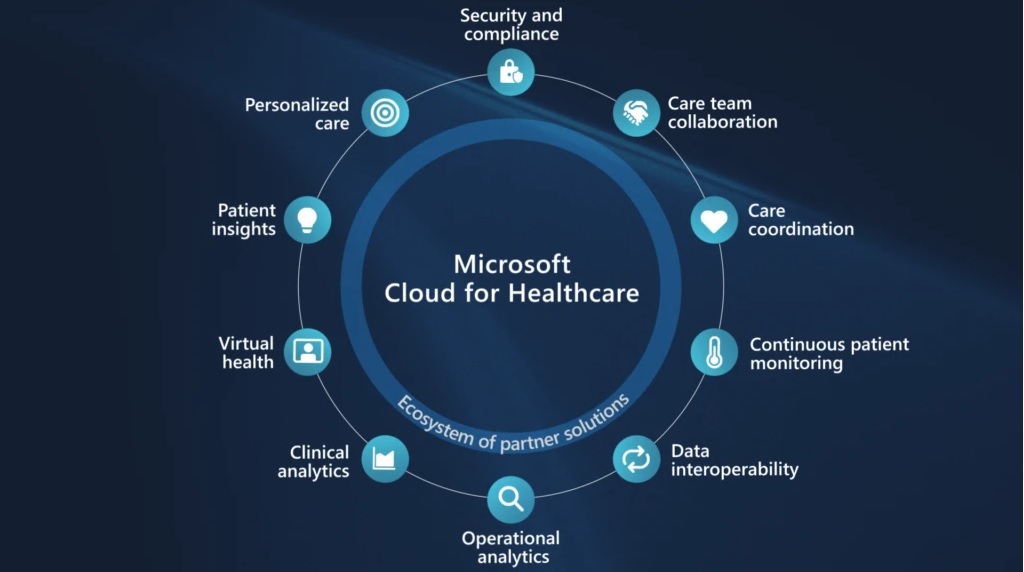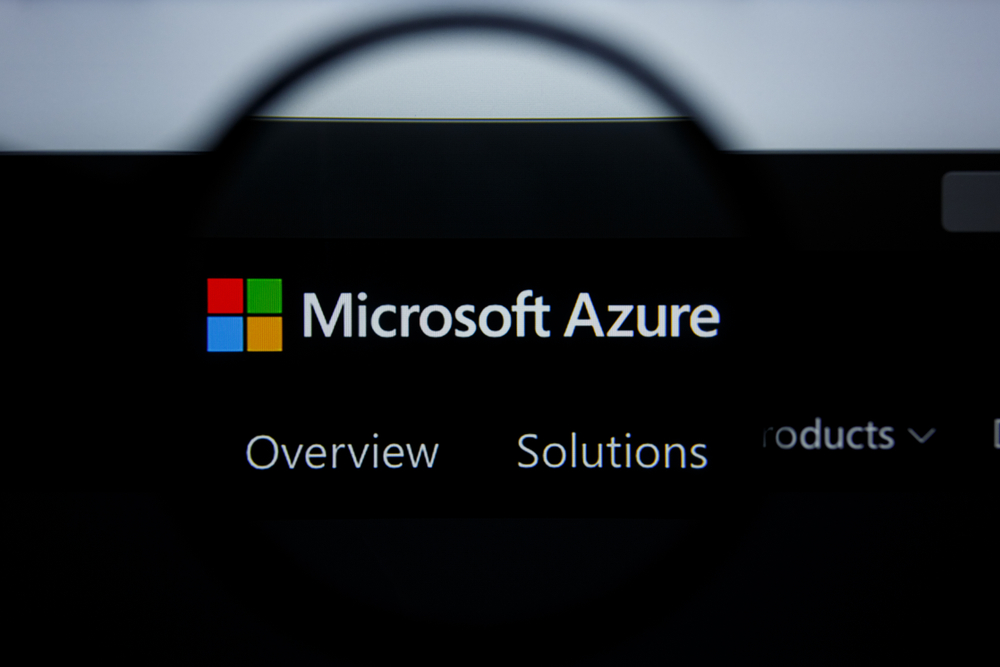Microsoft Cloud for Healthcare launches Oct. 30
Development will continue, as Microsoft plans to support and grow the health care ecosystem

In May, Microsoft announced its new Cloud for Heathcare service, but it was only available in preview. The full details and launch date were unclear. At Ignite 2020, Microsoft fully unveiled its health-care-focused cloud and its Oct. 30 launch date.
When it debuts on Oct. 30, one of the Microsoft Cloud for Heathcare’s focal points will be to enhance patient engagement. The new cloud service will pull this off in part by allowing patients to self-schedule appointments, search for physicians, perform wellness outreaches, set care reminders and interact with care agents, patient portals and virtual health bots online.
There are also many features that’ll help streamline the process for health care providers, including:
- Patient 360 based on HL7 FHIR, which gives health care providers full context into patient history, encounters, conditions, procedures and appointments. This is built in a heath care common data model, based on HL7 FHIR and integrates with Azure FHIR service.
- Providing health care providers real-time data to build personalized patient outreach programs that create proactive care experiences.
- Helping teams create actionable insights across care plans and interactions with individual patients. This ensures patient needs and preferences are known and addressed.
- Optimizing resource management, planning and health team efficiency to assign the right health care worker to fit the patient’s needs.
RELATED RESOURCE

The Hospital of the Future starts today
Technology has fundamentally changed the way we practice patient care
Microsoft also announced specific Microsoft Teams templates for health care workers and Microsoft Teams EHR, whch is in preview phase. The latter will allow clinicians and patients to launch Teams virtual visits right from Epic’s patient and provider portals. A set of APIs will also enable Teams integration into existing health care systems.
Other features include the soon-to-arrive appointment-confirmation texts to patients, a smart-tracking system called Lists for Teams, and more.
Microsoft plans to continue expanding and supporting its health care partner ecosystem, which is critical amid the coronavirus pandemic. We’ll continue monitoring the growth of the Microsoft Cloud for Heathcare service and bring updates as they come.
Get the ITPro daily newsletter
Sign up today and you will receive a free copy of our Future Focus 2025 report - the leading guidance on AI, cybersecurity and other IT challenges as per 700+ senior executives
-
 Bigger salaries, more burnout: Is the CISO role in crisis?
Bigger salaries, more burnout: Is the CISO role in crisis?In-depth CISOs are more stressed than ever before – but why is this and what can be done?
By Kate O'Flaherty Published
-
 Cheap cyber crime kits can be bought on the dark web for less than $25
Cheap cyber crime kits can be bought on the dark web for less than $25News Research from NordVPN shows phishing kits are now widely available on the dark web and via messaging apps like Telegram, and are often selling for less than $25.
By Emma Woollacott Published
-
 Microsoft is ending support for the Remote Desktop app – here are three alternatives you can try instead
Microsoft is ending support for the Remote Desktop app – here are three alternatives you can try insteadNews Microsoft has announced plans to end support for its Remote Desktop application in just over two months.
By George Fitzmaurice Published
-
 Microsoft's huge AI spending has investors worried – now the company is changing its financial reporting to highlight successes
Microsoft's huge AI spending has investors worried – now the company is changing its financial reporting to highlight successesNews The move comes as investors want more evidence that Microsoft’s AI investment will pay off
By Nicole Kobie Published
-
 Could Python in Excel be a boon for cryptocurrency miners?
Could Python in Excel be a boon for cryptocurrency miners?Opinion Free Python compute resource on offer via Microsoft 365 beta preview – what could possibly go wrong?
By Richard Speed Published
-
 Microsoft defends “negligent” security approach that prolonged vulnerability fix for five months
Microsoft defends “negligent” security approach that prolonged vulnerability fix for five monthsNews The tech giant has refuted claims that its practices have left customers “in the dark”
By Ross Kelly Published
-
 Microsoft Build 2023: Microsoft Fabric and oodles of Azure AI integrations announced
Microsoft Build 2023: Microsoft Fabric and oodles of Azure AI integrations announcedNews Microsoft Fabric aims to greatly improve developer productivity and simplify real-time analytics
By Ross Kelly Published
-
 Five ways to reduce Kubernetes costs
Five ways to reduce Kubernetes costsTutorials With cutting expenditure a business imperative, there are several ways enterprises can reduce Kubernetes costs
By Ross Kelly Last updated
-
 Azure spending notifications for customers unavailable until March, Microsoft warns
Azure spending notifications for customers unavailable until March, Microsoft warnsNews Customers have been advised to manually monitor Azure usage and costs until a fix is implemented
By Ross Kelly Published
-
 Microsoft cloud revenue still sky-high as device sales continue to slide
Microsoft cloud revenue still sky-high as device sales continue to slideNews The company's latest earnings call revealed that Azure cloud products delivered better-than-expected results while numbers in other divisions fell substantially
By Ross Kelly Published